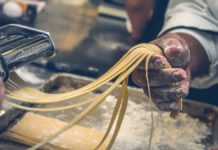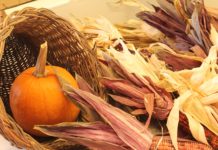MAND, the Minnesota Academy of Nutrition & Dietetics, is an organization committed to keeping food and health inextricably linked, and to the education of why that is so important – for anyone, at any age, and especially for those whom being conscious of the things that go in your body, and nutrition-based eating practices, is something unfamiliar.
When the Academy was founded, in 1918, “dietetics” wasn’t even a word in the lexicon, and most of the country was still eating whatever they had available without much knowledge of what it was – or wasn’t – doing for them. And while we’ve come a long way since then, the tenets, and core principles, of the organization remain the same:
“Optimizing Minnesotans’ health through food and nutrition.”
It seems simple enough. But as our relationship with health and food, and the relationship between the two, continues to evolve, we also discover that ensuring our eating practices lead us to a healthier, more dynamic lifestyle is anything but simple.
The centennial is a celebration of progress, yes: where we’ve been and the progress we’ve made as people and as a society. But it also looks to the future – what is coming next, and why the need for dietitians, and nutrition education, is as necessary now as it has ever been before.
A 100-year mission (and where we stand today)
While the MAND’s annual meet up has been taking place for decades, and every year from 25 to 50, 75, 99, or any one in between are also well-deserving of acknowledgment for the group, there was certainly a tangible sense of excitement leading up to the evening gala marking the 100th.
100 years of making the world of food, health, and nutrition a better, more-informed place?
We’ll drink to that.
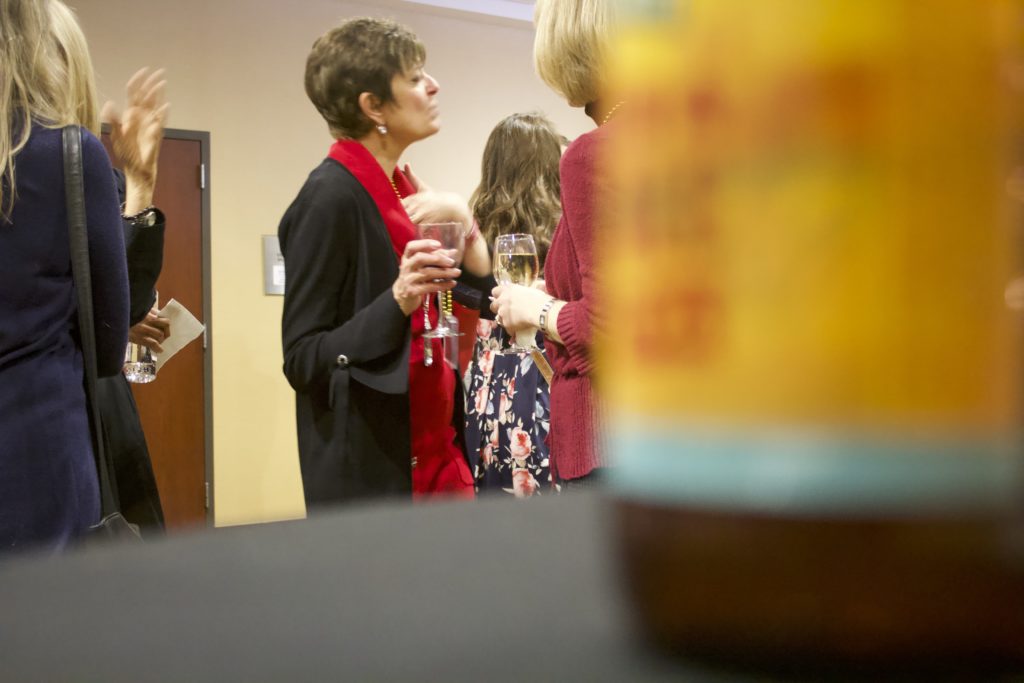

It could have just been the party – as a glass of wine always makes things a little more exciting – but also because there is a true sense of accomplishment at the 100 year mark: There was a palpable energy throughout the conference, and a feeling that something real has taken place; accomplishments worthy of celebration.
As departing MAND President Dan Greenwood tells us, “We are experiencing a nutrition revolution. People have woken up to how important nutrition is, whether it’s your family doctor, spouse, or child.”
And there have been tangible results:
“Registered Dietitian Nutritionists will be a common household name. Insurance will cover patients seeing us because we can save money by reducing chronic diseases like diabetes and heart disease.”
Which might have been unheard of even 10 years ago.
We are redefining our relationship with food – “we” as in all of us: not just those who can afford it, as has been the case in the past (and continues to be in underserved areas), or those who have taken the extra time and effort to seek out “better” groceries. It’s everyone, now, starting to learn about the intricacies of the food we eat, and how exactly it affects our bodies – and discovering how important nutrition is to more than just our waistlines.
The Hippocrates quote, “Let food be thy medicine, and medicine be thy food,” certainly comes to mind. Though not enough to keep me from grabbing a second Summit from the bar…
It is still a party after all.
So what is “healthy” food?
One easy piece of advice?
Dan says, “Eat your vegetables.”
Okay, so you’ve probably heard that one before. But it’s not just about eating vegetables because you have to, or because your parents put them on your plate growing up; it’s not just stuffing yourself full of greens because that’s all there is to being healthy and enjoying your food.
“Find creative ways to make them taste good,” Dan explains. “My wife (also a dietitian) and I eat at least five servings of vegetables per day. We make buffalo sauce Brussels sprouts, pickled beet salads, and minced garlic and olive oil baked broccoli. Vegetables can be the highlight of your dinner. It just takes some tips from a great dietitian.”
Because many of our daily diets have evolved without the presence of fruits and vegetables. As of 2017, the Center for Disease Control (CDC) estimates that only 12% of Americans eat the minimum amount of fruit recommended (a cup and a half to two cups a day), and only 9% get the recommended amount of veggies (two to three cups a day).
And it should come as no surprise that the earlier you introduce something into the diet the more likely it will be eaten consistently later in life: One of the conference’s key discussions centered on “Learning to like a healthy diet,” led by Dr. Nuala Bobowski of St. Kate’s University.
The base line is this: Even if we understand, inherently and intellectually, the health benefits and the things we should be eating for a balanced diet, “We aren’t going to eat something that we think tastes terrible.”

But this is something that can develop at a (very) young age. Like, pre-diapers young. Like, still-in-the-womb young.
Kids are much more excited about sugar/sweet things/candy. A number of studies have confirmed how much stronger the relationship with sweets is for kids have than adults, and how much more they oppose things that taste bitter/are more complex. But simply allowing our children, with studies to support that this can and should start while babies are still in utero, to come into constant contact with these flavors and smells, helps the chances for enjoyment, and thus the consuming, of these things later on.
The more produce, etc. the mother eats, the more a child will appreciate and be willing to eat produce later in life.
And, consequently, as many of the foods that provide us with nutrients are ones considered bitter, “Introducing foods at a young age helps to cultivate a healthy diet.”
(For further reading, Dr. Bobowski was also interviewed by The Atlantic magazine for her work on the impact of flavor and health. You can find the link to that article as follows: The Science That Could Make You Crave Broccoli More Than Chocolate.)
Trust, and building a relationship with food
Dan describes another important piece of this intricate nutritional puzzle,
“Our event this weekend is bringing nutrition experts from across the country. Our topic of ‘Gut Health’ is one of the hot topics in nutrition research. We have researchers presenting on the microbiome which is essentially the environment of your gut. We are learning that this environment shapes and impacts your entire body and mind.”
Basically that your stomach/digestive system has something of a mind of its own – which is a lot less freaky than it sounds; just that we have to listen, and learn, from it just as much as we do the brain between our ears.
Incoming MAND President Jana Dengel, whose background links athletics with the importance of good food and nutrition (watch her video Fueling Up to Be Your Best below), can’t stress this importance of this enough.
“Eat a variety of natural, unprocessed foods – count 35 different foods in one week,” she says to make sure you’re getting everything your body needs (and wants). Listening to our gut, and keeping it healthy (and happy) offers innumerable benefits for both the body and mind.
But, of course, that’s not always easy to do on our own. That’s why dietitians are here to help:
As Jana will tell you, “There is a large variation in what is an ideal diet for a particular person at a particular time… As the nutrition experts, a registered dietitian nutritionist can customize a diet plan to help you reach your personal goals.”
Because, when it comes down to it, our relationship with what we eat is our relationship. Mine or yours alone. There is no “one size fits all” mentality, and never will (never should) be.
Another important presentation, led by Sharon Lehrman, focused on another emerging practice – something that has become increasingly common on social media feeds and health blogs: Intermittent fasting. It might, especially due to increasing popularity, sound like a buzzword. But it’s one with tangible benefits.
The more we understand how eating affects our mood, our productivity, and even links to cancer survival rates, the more we understand that it’s not just about what we’re eating, but also how often. Many people benefit from eating less, some people from eating more – some people benefit from limiting the hours of which they eat, and others do not.
For more information on intermittent fasting, check out the following literary resources from Lehrman’s presentation:
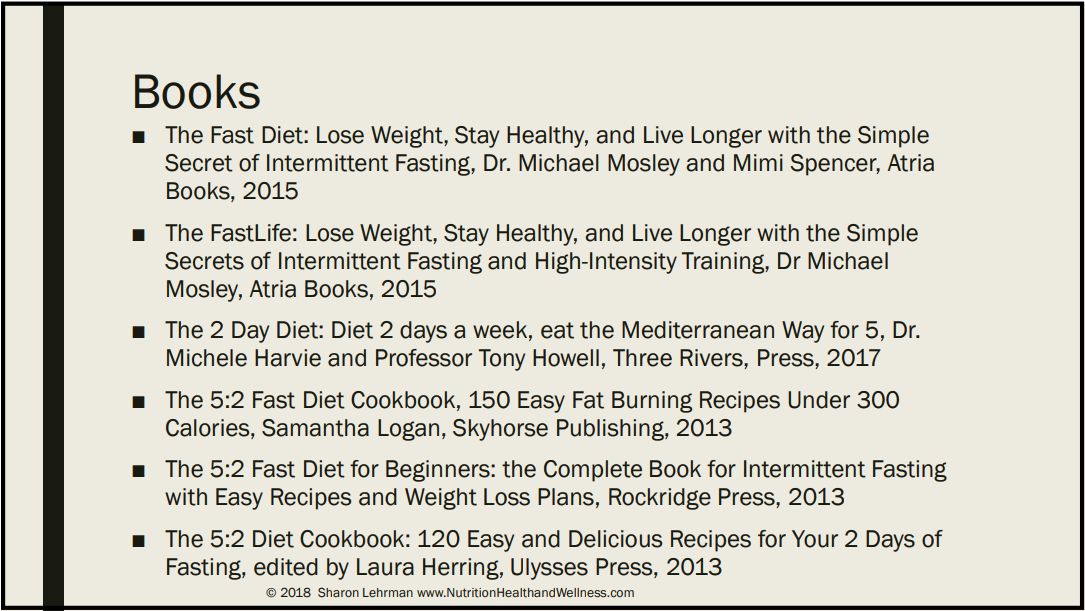
And what’s more important is understanding the difference between those “quick fix” diets and tricks and actual lifestyle changes that improve health and well-being overall.
This, perhaps, is the most important lesson: Food, and eating, is something that is very personal, and different for everyone.
“I became a dietitian because of my Dad,” Dan shares. “When I was a kid, he was morbidly obese (an unhealthy amount of fat). My grandfather died and simultaneously my Dad started to experience health problems. That’s when he started to change his nutrition habits, exercising, and working with a dietitian. He went on to lose 80 pounds and has kept it off for nearly 30 years. I witnessed my Dad’s life getting better through nutrition and lifestyle. That’s my hope for everyone. To live your best life, to have energy, to feel good, to perform your best.”
The next 100 years
The work is important, vital even, to our longevity. This what the gala is about: A toast to a century of progressive eating, an incalculable increase in awareness, and dynamic changes to the tumultuous landscape of food and health. Champagne pours forth from the heavens (in moderation, of course), laughter and discussion fill the hall, meals of mushroom risotto and perfectly-cooked steak are served on porcelain plates on tables draped in white, a barbershop quartet sings in the background.
As the meal ends, and dinner plates disappear to make room for dessert (birthday cake, of course, as it is a very special birthday), the final event of the night, the panel presentation, takes to the stage: A chance to get to know some of the dietitians in the field, and a chance to talk about the next stage of MAND, of dietetics, and nutrition in Minnesota, United States, and far beyond.
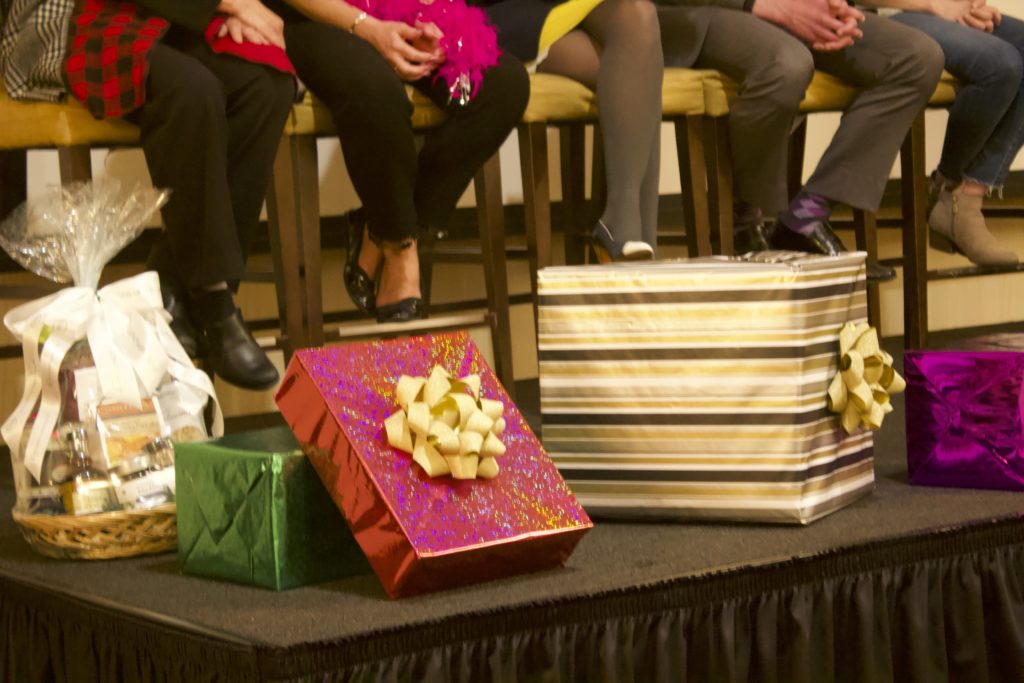
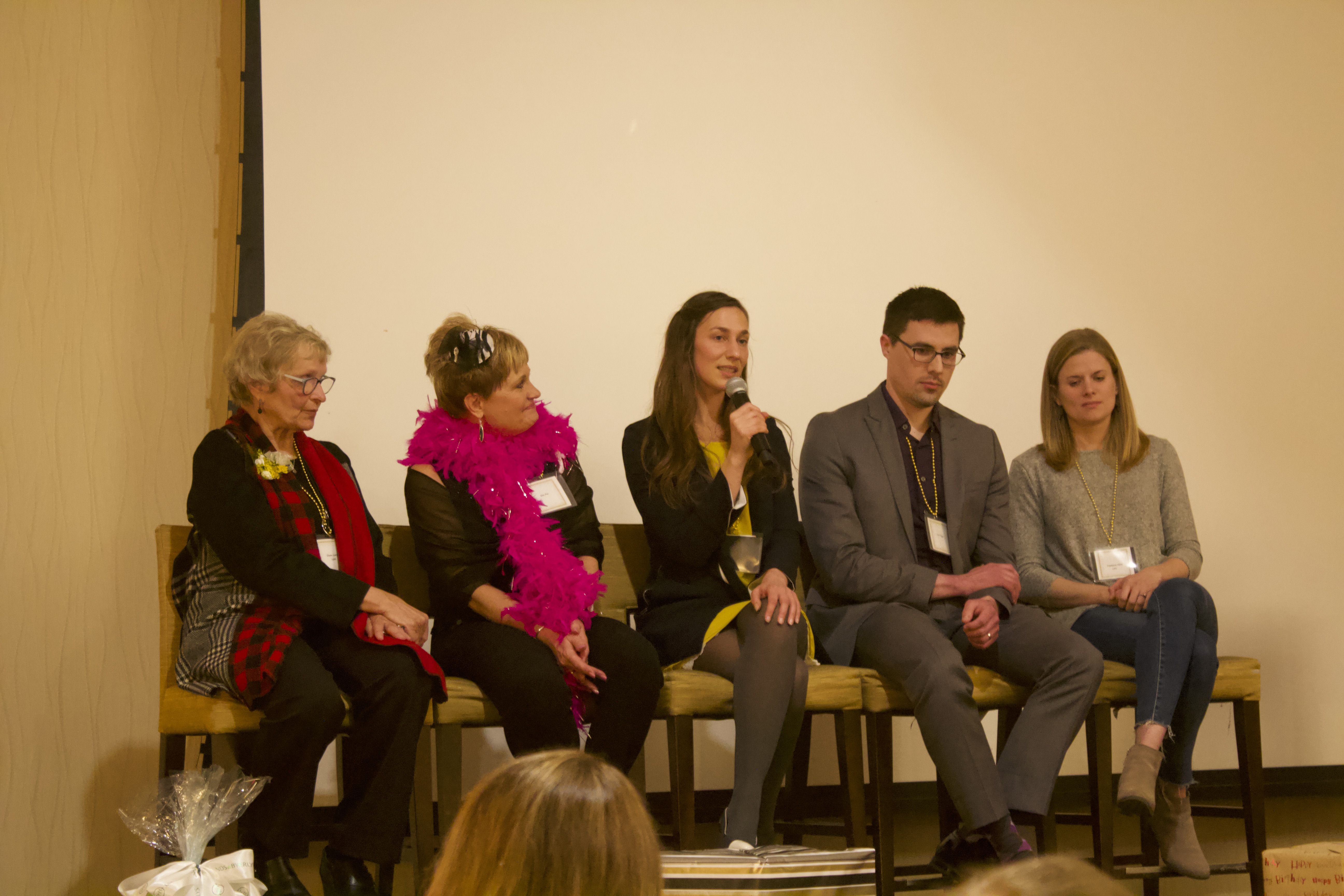
Our health and wellness writer, Ranelle Kirchner, as a part of the panel (center, with microphone, in the photo above), identified a few of the challenges facing dietetics; the hurdles a dietitian faces to not only address key issues in health, but to convince the public that this work is necessary/important in the first place:
“People don’t always understand [why] they need dietetic services,” she says. “It’s preventative, which is often hard to explain. If they have a broken arm, people understand what they’re paying for. When you ask someone to change their habits and lifestyle and diet for an intangible future – to prevent something like diabetes – it’s harder to quantify.”
But still, optimism remains high. “We’re seeing a push toward academia, but also a push toward including more culinary arts in the field. More chefs are getting involved.”
To close a final gap between the foods we love, and love to eat, and their effects in both the short, and the long term.
Dietitians are no longer toiling in the basements of hospitals, feeding comatose patients in obscurity (though they still do that, too). The door has been opened, and these men and women (though, mostly women; a disparity acknowledged during the discussion as well: “Where are all the men?”) are now out in the world, on the streets, utilizing telehealth (virtual) counseling services and any/everything else at their disposal to make sure their knowledge and expertise does not go unnoticed/unused.
As Dan says, “I like to think of us as the pulse of food and nutrition.”
And, as long as these dietitians continue working diligently, the pulse of every MAND member, every dietitian and nutritionist, and, perhaps most importantly, everyone they help to discover new ways to eat, enjoy, and benefit from the things on their plate, will remain strong.
Read this article next: Before you pay up and commit, I’ve tried out a few gyms for you





